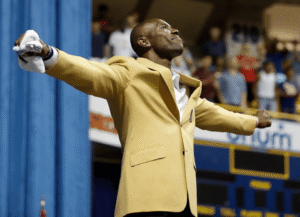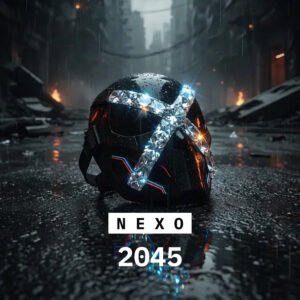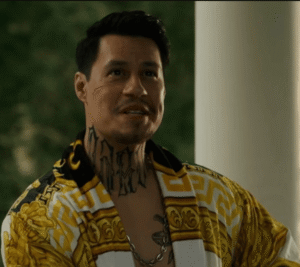Drake’s $500M Move to Sony? Damizza Alleges UMG Sabotaged Artist with Kendrick Lamar’s “Not Like Us”
Producer Damizza has publicly accused Universal Music Group of orchestrating a campaign to devalue Drake ahead of his potential $500 million transition to Sony Music. At the center is Kendrick Lamar’s viral diss track “Not Like Us,” which Drake claims UMG promoted to hurt his brand and weaken his negotiating leverage. The explosive legal battle could reshape artist-label relations in the streaming era.
The music industry was shaken by Damizza, who claims that Universal Music Group (UMG) deliberately undermined Drake despite his rumored departure from the label. Damizza stated that the calculated campaign was based on the viral promotion of Kendrick Lamar’s explosive diss track ‘Not Like Us.’ Drake’s brand value was damaged, and his bargaining power was limited by being strategically placed to negotiate a $500 million deal with Sony. These accusations provide an explosive context for Drake’s defamation lawsuit against UMG, his current label, which claims that they actively played a role in approving, publishing, and widely promoting ‘Not Like Us’ despite its provocative and unverified claims.
Drake’s Lawsuit Against UMG: Alleging Corporate Defamation
The controversy centers on Drake’s legal battle with UMG, in which Drake alleges that the label intentionally defamed him for financial gain and strategic positioning.
Key Allegation: Kendrick Lamar’s ‘Not Like Us’ was approved by UMG because it contained false and defamatory allegations against Drake, as well as harmful narratives that have led to real-world threats to Drake’s safety and reputation.
Drake’s lawsuit contends that the label’s actions constituted a breach of their fiduciary obligation to him as a signed artist. By endorsing a record that damaged his personal and professional image, UMG allegedly chose profit and revenge over protection and loyalty.
Industry Sabotage? Damizza Breaks Down a Common Music Business Tactic
Damizza, a veteran producer with extensive industry connections, articulates that this type of corporate sabotage is not new. He says that it’s a common practice for labels to devalue high-profile artists just before they leave, which makes them less attractive to competitors and reduces the buyout required for big-ticket contracts.
“The reason this whole case is happening is because Universal gave him $400 million. That was an advance on his royalties. And he recouped that in like a year, maybe a year and a half. He was already back in renegotiations,” said Damizza.
“Then Sony came along and offered him $500 million. He had major leverage. But Universal said no. And that’s where this case stems from.”
He added, “Did Universal release Kendrick’s project and sabotage Drake’s rollout to tank his numbers so that he wouldn’t have that leverage to make the Sony deal?
This is the game [record] labels play. We went through the same thing with Mariah Carey at the end of her run with Sony. When we were doing Heartbreaker, Tommy [Mottola] was out there actively trying to devalue her brand. The J.Lo thing, the Ja-Rule thing — all of that was part of the strategy to weaken her before she left the label.
It’s a gangster tactic — and now you see why Drake is fighting back.”
Drake’s exit, especially if it’s tied to a $500 million Sony deal, marks a significant transition in modern music history. If accurate, the stakes are the explanation for UMG’s alleged pushback intensity.
The Viral Push: How “Not Like Us” Was Allegedly Amplified
Drake’s legal team and insiders, such as Damizza, have raised suspicions about the promotional tactics used to propel ‘Not Like Us’ into a viral phenomenon. The allegations include:
Payola-style incentives: Content creators and influencers were allegedly paid or incentivized to use the song in videos, reels, and streams.
Copyright looseness: The usual strict enforcement of content rights was lifted, allowing the track to be freely distributed and monetized.
Bot traffic: The lawsuit references data suggesting automated streaming spikes, which may indicate bot engagement that artificially inflates the song’s numbers.
UMG argues that they didn’t just provide support for a hit — they engineered it by utilizing all the digital tools at their disposal to ensure Kendrick’s diss track spread rapidly across TikTok, Instagram, Spotify, and YouTube. Drake’s public standing was allegedly damaged by the project’s virality, despite its profitability, at a time when he needed stability and strength in business negotiations.
Drake’s Market Value: Deliberate Devaluation Ahead of Sony Talks
Drake’s argument centers on the assertion that UMG sought to decrease its market value. Why? He could now negotiate a new deal with Sony valued at $500 million, as he had already recouped his previous $400 million investment with UMG. Drake’s legal team argues that UMG intentionally drove negative headlines and used virality to attack him.
Drake’s legal team accuses UMG of intentionally driving negative headlines and weaponizing virality against him.
Damage public perception
Create reputational risk for potential partners like Sony
Limit Drake’s leverage during negotiation
Discourage competitors from making substantial offers
The song aimed to make Drake a liability rather than an asset by linking him to unfounded misconduct allegations.
UMG’s Defense: Artistic Expression vs. Corporate Malice
UMG has denied all responsibility for the lawsuit. According to their legal filings:
They did not defame Drake
They supported an artist’s creative expression
They did not intend harm, financial or reputational
UMG’s team has rejected the notion that backing ‘Not Like Us’ is defamation. They argue that the song falls under protected artistic speech, and that Drake is using the courts to silence criticism.
Industry insiders are reporting that Kendrick Lamar is signed to pgLang, which is distributed through UMG, raising questions about whether internal politics were involved in the powerful rollout of the “Diss” track.
A Deepening Divide: Artists, Labels, and Narrative Control
As top-tier artists continue to challenge traditional label models, this lawsuit is timely.
Drake’s fight with UMG raises larger questions about:
Artist independence
Narrative ownership
Label loyalty vs. business interest
The ethics of weaponized virality
If Damizza’s assertions are correct, UMG’s playbook reveals a culture of control that systematically devalues even top performers to maintain corporate power.
Summary Table of Allegations and Responses
| Claim/Action | Source/Allegation |
|---|---|
| Drake negotiating exit from UMG to Sony | Damizza, social media reports |
| UMG promoted “Not Like Us” diss track | Drake’s lawsuit, media analysis |
| Use of bots, incentives to amplify track | Legal filings, streaming analysis |
| Strategic timing to lower Drake’s market value | Damizza, legal arguments |
| UMG’s defense: No defamation, only expression | UMG legal filings and press statements |
Will This Change the Music Business?
Drake’s lawsuit against UMG, in addition to Damizza’s revelations, has the potential to impact the relationship between artists and labels in the streaming era. If validated, it would demonstrate that a major label is actively working against the best interests of its own artists for strategic gain. The fragility of brand value in the digital age is exemplified in this scenario.
If a well-placed narrative, whether true or not, is presented correctly, it can quickly alter career and contract terms. All eyes are on the verdict and potential fallout as the legal process unfolds. Will other artists replicate Drake’s path to full ownership and independence? Are there any new restrictions on how labels handle departing stars? Drake has the potential to be the artist who forces the next rewrite in the music game’s evolution.






